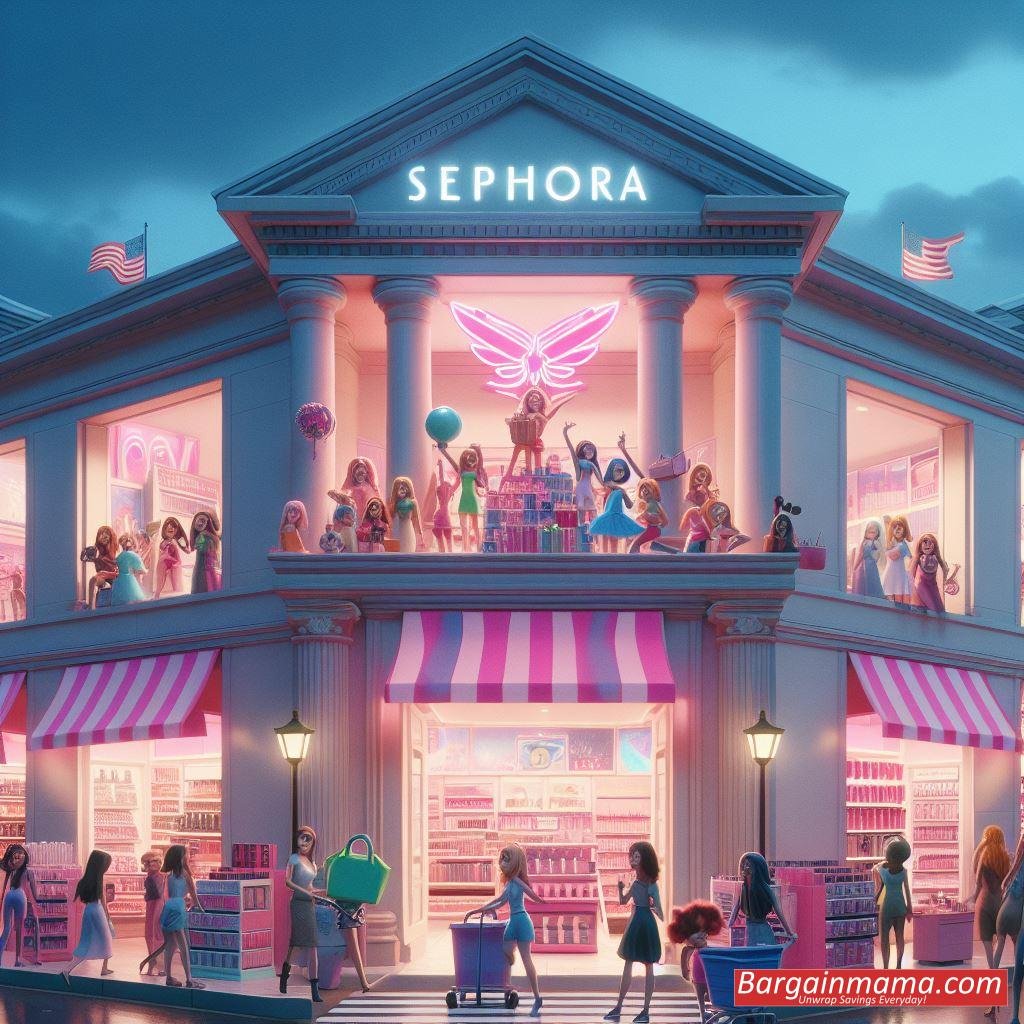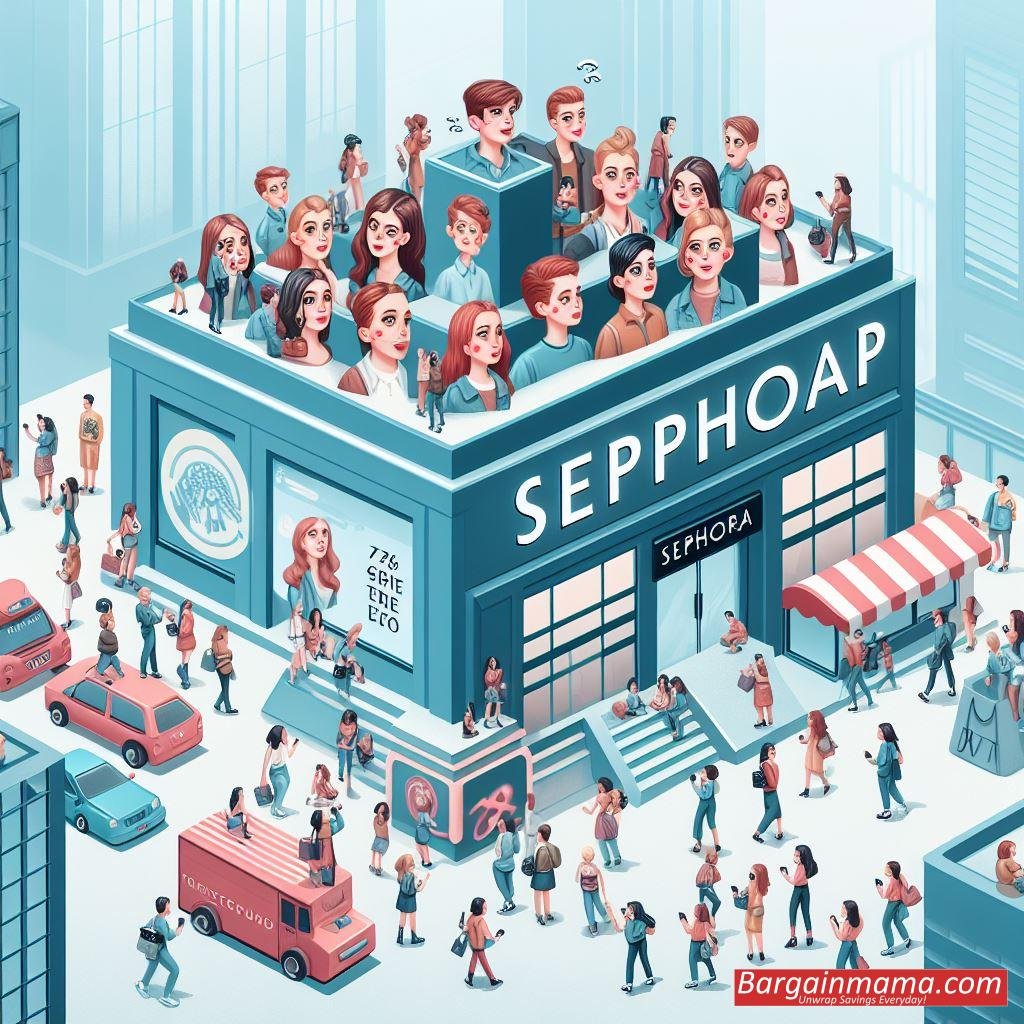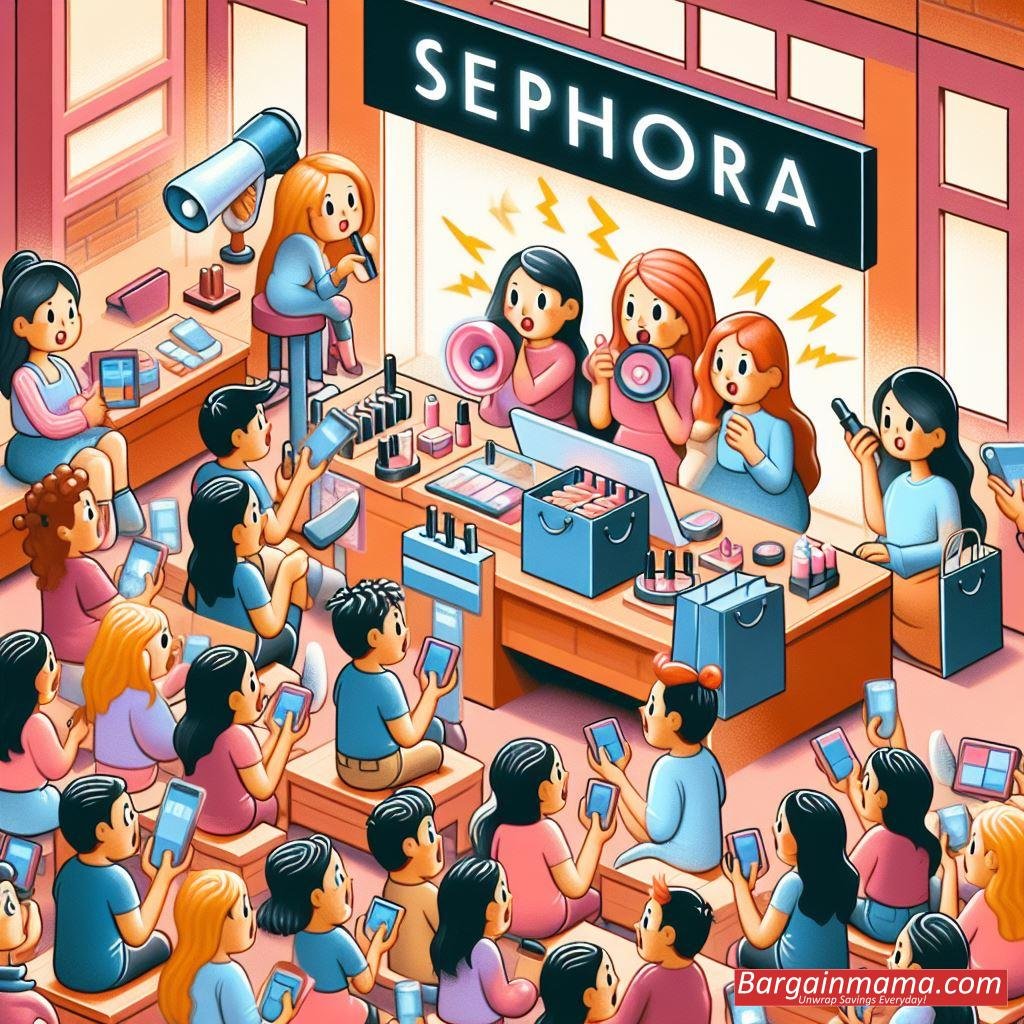Surprisingly, more and more tween and teen customers are visiting Sephora locations around the country, which has parents, influencers, and industry professionals intrigued and alarmed. A contentious online discussion has arisen in response to the increase of youthful customers at the beauty giant, with some criticising the suitability of tweens dabbling in high-end skincare and cosmetics.
Reactions to the phenomenon, which is mostly ascribed to TikTok’s influence, have been conflicting. On the platform, a few producers vent their dissatisfaction by mentioning incidents of what they consider to be rudeness, product theft, or misuse by juvenile customers. Others counter that the true problem is society’s expectations of what constitutes the “right” form of beauty, not young girls’ interest in beauty.

To find out why this practice is becoming more popular, Mashable chatted with a number of young girls, their mothers, and Sephora staff members. On the Saturday following New Year’s Day, observations at a Sephora store in the East Bay of San Francisco showed that roughly half of the patrons looked to be under the age of 15.
Influencers and content producers on TikTok stoked tweens’ interest in skincare and beauty, making the platform a major driving force behind this trend. The surge in popularity of Get Ready With Me (GRWM) videos, in which people style themselves while engaging with the camera, has especially helped to excite young audiences about beauty.
According to the survey, girls are attracted to items not only because of their usefulness but also because of the way they are packaged. Among younger consumers, certain brands such as Glow Recipe and Drunk Elephant stand out. There have been questions about whether these products—which are frequently sold in eye-catching, colourful packaging—are appropriate for pre-adolescent skin.

With their children showing an increasing interest in high-end beauty products, parents are having to deal with the financial fallout. According to the survey, some parents place restrictions, letting them buy skincare products but asking them to pay for their own makeup.
As the discussion heats up, recommendations for Sephora and influencers to be more aggressive in advising younger customers have surfaced. The founder of Krave Beauty, Liah Yoo, suggests holding skincare seminars, educational programmes, and a special section of Sephora just for teenagers.
But the debate has expanded to include a larger examination of parental accountability. Influencers who target teenagers, like as Katie Fang, must walk a tightrope between being mentors and creators. Drunk Elephant entrepreneur Tiffany Masterson and former Real Housewives star Bethenny Frankel have also joined in, arguing that parents should control how much and what their kids are exposed to when it comes to cosmetic trends and purchases.

The report’s conclusion emphasises the importance of showing these young consumers sympathy and assistance while also respecting their intelligence and familiarity with marketing strategies. In this changing beauty scene, parents and the industry are asked to strike a balance between encouraging self-expression and guaranteeing responsible consumption, especially as Sephora grows in popularity as a hangout for tweens.



